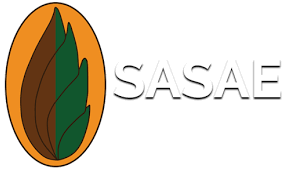Exploring the Role of Indigenous Vegetables in Rural Livelihoods: Perceptions from the Ntuze Community
DOI:
https://doi.org/10.17159/2413-3221/2023/v51n1a14377Keywords:
Agricultural extension, Sustainable livelihoods, Indigenous vegetation, Climate variationAbstract
An increasing number of countries face growing food insecurity levels, severely impacting rural livelihoods. South Africa is no exception, mainly because it meets the worst forms of socio-economic issues: the triple challenge of poverty, the inequality gap, and non-inclusive economic growth. Influenced by a growing number of people in underprivileged communities who face food poverty, the researchers bring to the fore the value of wild indigenous vegetation, which is often neglected and perceived as food for the poor. To articulate this, data was collected from participants who utilise indigenous vegetables. Among the themes that were inductively identified were (i) household food security, (ii) the perceived medicinal benefits to improve their health conditions, and (iii) the source of income. The study proposes that promoting the production and utilisation of indigenous vegetables be considered an approach to raising awareness to dismantle the stigma around these foods and to further respond to the food insecurity crisis in underprivileged communities. There is an underappreciation of local varieties such as imifino yasendle (wild leafy vegetables) and stigmatisation of utilisation of these foods. This study re-imagines a renewed perception of indigenous vegetation in the quest to contribute to livelihood development and improve food security in underprivileged communities.
Downloads
References
ALTMAN, M., HART, T. & JACOBS, P., 2009. Household food security status in South Africa. Agrekon., 48(4): 345–361. DOI: https://doi.org/10.1080/03031853.2009.9523831
AKINOLA, R., PEREIRA, L.M., MABHAUDHI, T., DE BRUIN, F. & RUSCH, L., 2020. A review of indigenous food crops in Africa and the implications for more sustainable and healthy food systems. Sustainability., 12: 1–30. DOI: https://doi.org/10.3390/su12083493
BARUCHA, Z. & PRETTY, J., 2010. The roles and values of wild foods in agricultural systems. Philos. T. Roy. Soc. B., 365: 2913–2926. DOI: https://doi.org/10.1098/rstb.2010.0123
DAVIS, K.E. & TERBLANCHE, S.E., 2016. Challenges facing the agricultural extension landscape in South Africa, Quo Vadis? S. Afr. J. Agri. Ext., 44(2): 231–247. DOI: https://doi.org/10.17159/2413-3221/2016/v44n2a428
DENZIN, N K. & LINCOLN Y. S., 2011. The Sage handbook of qualitative research. Sage.
FAO., 1996. World food summit: Declaration on world food security. Rome: FAO.
GLASER, B.G., STRAUSS, A.L. & STRUTZEL, E., 1968. The discovery of grounded theory; strategies for qualitative research. Nurs Res.,17(4): 364. DOI: https://doi.org/10.1097/00006199-196807000-00014
HANEMAAYER, R., ANDERSON, K., HAINES, J., LICKERS, K.R., XAVIER, A.L., GORDON, K. & NEUFELD, H.T., 2020. Exploring the perceptions of and experiences with traditional foods among first nations female youth: A participatory photovoice study. Int. J. Environ. Res. Public. Health., 17: 1–16. DOI: https://doi.org/10.3390/ijerph17072214
KIMIYWE, J., WAUDO, J., MBITHE, D. & MAUNDU, P., 2007. Utilisation and medicinal value of indigenous leafy vegetables consumed in urban and peri-urban Nairobi. Afr.J. Food. Agric. Nutr. Dev., 7(4): 1–15. DOI: https://doi.org/10.18697/ajfand.15.IPGRI2-4
LABADARIOS, D., MCHIZA, Z.J., STEYN, N.P., GERICKE, G., MAUNDER, E.M.W., DAVIS, Y.D. & PARKERA, W., 2011. Food Security in South Africa: A review of national surveys. Food. Secur. S. Afric., 89(12): 891–899. DOI: https://doi.org/10.2471/BLT.11.089243
LEWU, F.B. & ASSEFA, Y., 2009. Farmer's knowledge in the cropping systems of Northern KwaZulu-Natal, South Africa: Current challenges and solutions for sustainable future production. Afr. J. Agric. Res.,4(11): 1148–1153
LEWU, F.B. & MAVENGAHAMA, S., 2010., Wild vegetables in Northern KwaZulu-Natal, South Africa: Current status of production and research needs. Sci. Res. Essays., 5(20): 3044–3048.
MASEKO, I., MABHAUDHI, T., TESFAY, S., ARAYA, H.T., FEZZEHAZION, M. & DU PLOOY, C.P., 2017. African Leafy Vegetables: A Review of Status, Production and Utilisation in South Africa. Sustainability., 10: 1–16. DOI: https://doi.org/10.3390/su10010016
MOORE, C.G., CARTER, R.E., NIETERT, P.J. & STEWART, P.W., 1978. National commission for the protection of human subjects of biomedicaland behavioral research (national commission). Belmont Report: Ethical principles and guidelines for the protection of human subjects of research. Washington, DC: Federal Register Document.
NJUME, C., GQAZA, B.M., GEORGE, G. AND GODUKA, N.I., 2014. Inhibitory and bactericidal potential of some indigenous functional food-plants used in the OR Tambo District Municipality of South Africa. J. Biosci. Med., 2(06): 34. DOI: https://doi.org/10.4236/jbm.2014.26006
PERRET, S., ANSEEUW, W. & MATHEBULA, F., 2005. Poverty and livelihoods in rural South Africa: Investigating diversity and dynamics of livelihoods. Case studies in Kellogg's Foundation, University of Pretoria.
SHACKLETON, C.M., SHACKLETON, S.E., BUITEN. E. & BIRD, N., 2007. The importance of dry woodlands and forests in rural livelihoods and poverty alleviation in South Africa. For. Pol. Econ., 9(5): 558–577. DOI: https://doi.org/10.1016/j.forpol.2006.03.004
SIBANI, C.M., 2018. Impact of western culture on traditional African society: Problems and prospects. J. Rel. Hum. Rel. 10(1): 56–72.
STATISTICS SOUTH AFRICA., 2011(a). Provincial profile: KwaZulu-Natal. Report No. 03-01-74. Available from http://www.statssa.gov.za/publications/Report-03-01-74/Report-03-01-742011.pdf
STATISTICS SOUTH AFRICA., 2011(b). Census 2011: Income dynamics and poverty status of households in South Africa. Report No. 03-10-10. Available from http://www.statssa.gov.za/publications/Report-03-10-10/Report-03-10-102014.pdf
STATISTICS SOUTH AFRICA., 2018. Towards measuring the extent of food security in South Africa: An examination of hunger and food inadequacy. Report No. 03-00-14. Available from http://www.statssa.gov.za/publications/03-00-14/03-00-142017.pdf
TAHERDOOST, H., 2016. Sampling methods in research methodology; How to choose a sampling technique for research. Int. J. Acad. Res. Manag., 5(2): 18–27. DOI: https://doi.org/10.2139/ssrn.3205035
TINDANA, P.O., KASS. N. & AKWEONGO, P., 2006. The informed consent process in a rural African setting: A case study of the Kassena-Nankana District of Northern Ghana. Ethics. Hum. Res., 28(3): 1–6.
UNITED NATIONS., 1975. Report of the World Food Conference. Rome: United Nations.
VAN RENSBURG, W.S., VAN AVERBEKE, W., SLABBERT, R., FABER, M., VAN JAARSVELD, P., VAN HEERDEN, I., WENHOLD, F. & OELOFSE., 2007. A. African leafy vegetables in South Africa. Water SA., 33: 317–326. DOI: https://doi.org/10.4314/wsa.v33i3.180589
Downloads
Published
Issue
Section
License
Copyright (c) 2023 Q.N. Qwabe, T. Pittaway

This work is licensed under a Creative Commons Attribution 4.0 International License.







.png)